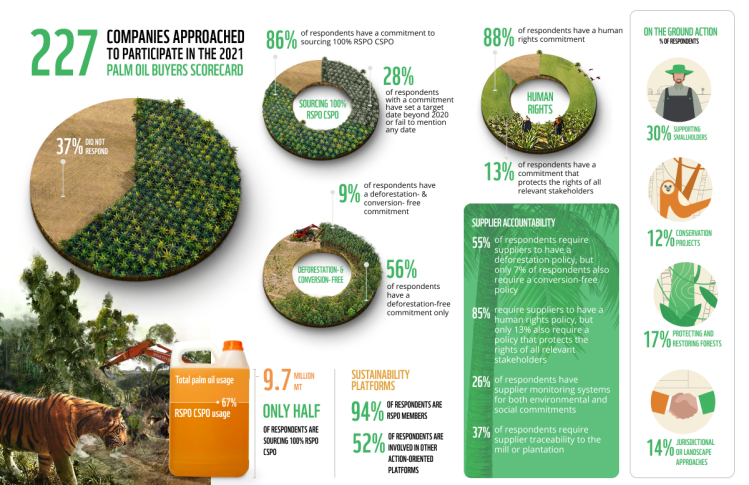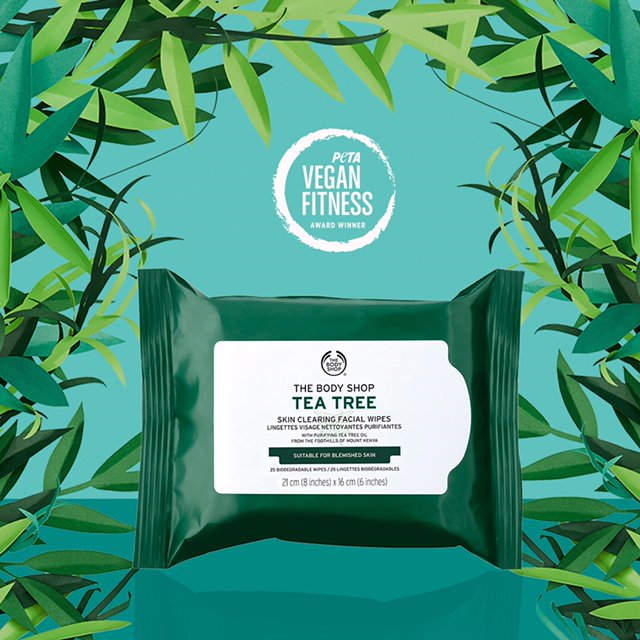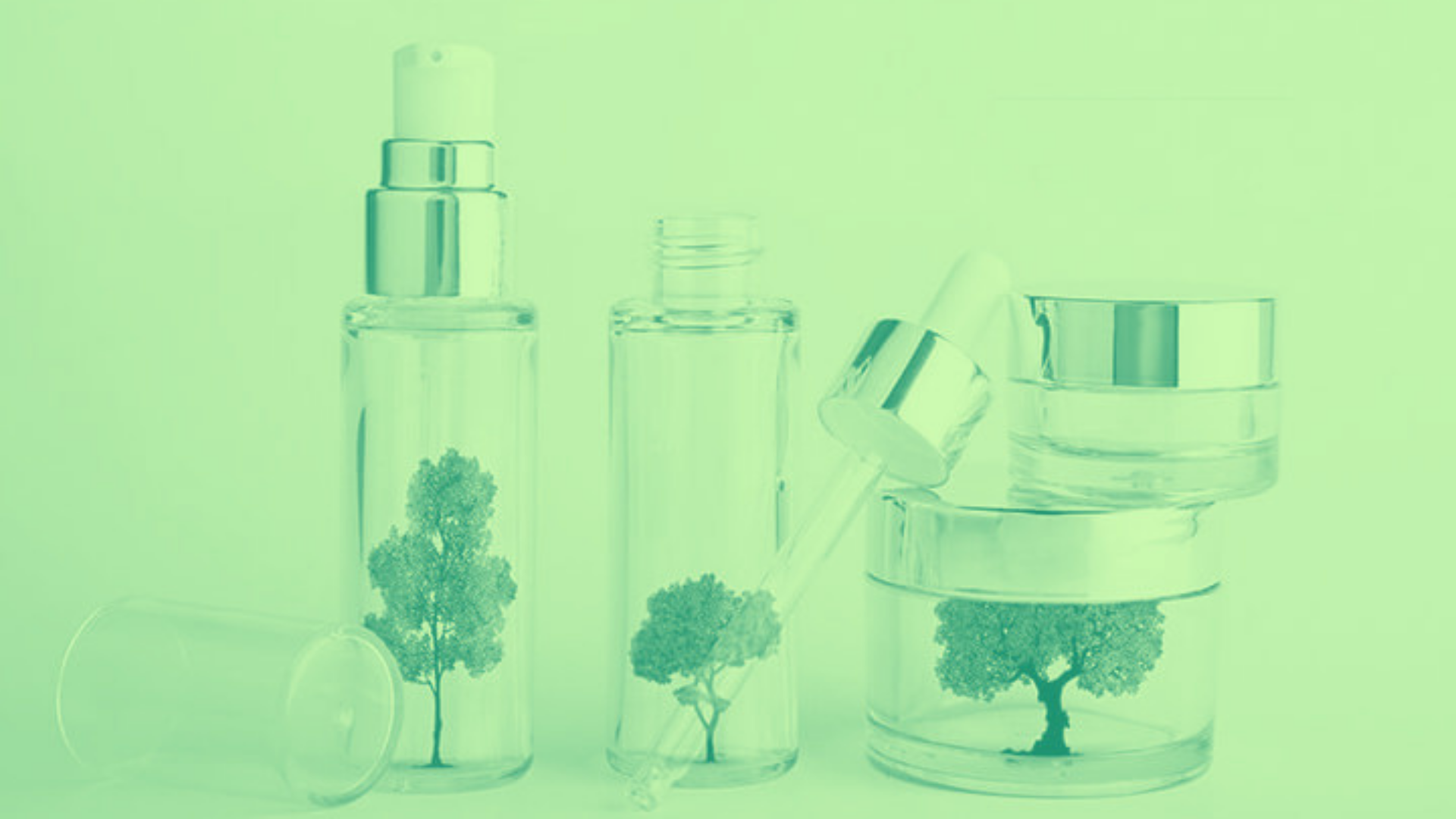Using design principles and greenwashing language in order to trigger emotional and unconscious responses in consumers
Design & Words
Using subliminal design principles and greenwashing language that signals ‘greenness’ to consumers
Share this insight on Twitter…
#Greenwashing Tactic #8: #Design and #Words: Using subliminal #design principles and #greenwashing #language to convey ‘greenness’ to #consumers. We #Boycott4Wildlife #Boycottpalmoil #FightGreenwashing
Tweet
Jump to section
Greenwashing: Design Principles
Greenwashing Design Example: Palm Done Right
Greenwashing Design Example: WWF Palm Oil Scorecard 2021
Greenwashing with Words: Vegan Versus Plant-Based
Greenwashing with Words: Destructive Global Brands Claiming to be Vegan
What is Veganism?
Greenwashing with Words and Phrases that Signal ‘Greenness’
Explore the Series
Further reading: greenwashing and deceptive marketing
Say thanks for this guide by donating to my Ko-Fi
Greenwashing: Design Principles
Some examples of design principles that signal ‘greenness’ in advertising
Hand-drawn typography and fonts.
Pastel colours or blue and green hues.
Hand-drawn or vintage and nostalgic animals and children illustrations in packaging and advertising design that bring to mind children’s books.
Happy, uplifting and nostalgic music.
Visual storytelling involving nature.
Green clothing, natural ambient noise and reassuring happy colours set the scene for storytelling by Palm Done Right
Dr Jennifer Lucy’s research, which is funded by the RSPO and industry sets out the minimum amount of rainforest that can be left over for endangered species by the palm oil industry.
Forest-inspired pie charts and hand-drawn icons tell the story of RSPO members in the 2021 WWF Palm Oil Scorecard
The WWF scorecard ranks RSPO member supermarket brands according to whether or not they have stopped with deforestation or other corrupt practices.
The WWF scorecard uses phrases like:
“9% of respondents have a deforestation and conversion free commitment.”
“88% of respondents have a human rights commitment”
What this means in reality…is absolutely nothing.

The most critical information is not included on the WWF Palm Oil Scorecard
That NONE of these supermarket brands (RSPO members) have ceased deforestation, land-grabbing, human rights abuses for palm oil. Instead, consumers are lulled into reassurances to purchase by the green, forest-inspired pie charts and positive, reassuring phrases.
Greenwashing with Words
Vegan Versus Plant-Based
Global brands are now claiming ‘eco-friendly’ status by saying that their products are vegan. This is despite these same brands causing global ecocide for palm oil, putting at risk thousands of endangered species
This hijacking of the vegan label is deeply problematic for many vegans. They are all too aware of the devastation of palm oil on rainforest ecosystems and endangered forest species. Most environmentally aware vegans DO NOT agree that palm oil is vegan. The definition of veganism is not only if an ingredient is ‘plant-based.’
Veganism is the strong rejection of all cruelty, death and slavery of animals. Palm oil is a global scourge to all tropical animal species – it is therefore NOT VEGAN.
Greenwashing with Words
Destructive Global Brands Claiming to be Vegan

The Body Shop: An RSPO member that uses so-called ‘sustainable’ palm oil, the Body Shop is able to persuade consumers of its green eco-friendly nature with the aid of forest-themed hand-drawn illustrations. Via Twitter

Nestle’s Vegan Kitkat: The world’s biggest consumer food brand has not suddenly become ‘green’. They continue with human rights abuses, deforestation, illegal landgrabbing for palm oil. However, claiming ‘Vegan’ status is a way to label themselves as green.

L’Oreal: is another brand cashing in on the vegan trend. By filling their cosmetics, hair care and skincare ranges with palm oil they claim vegan status. Via Twitter

Nestle Wunda drink: Nestle, one of the world’s most notorious brands linked to global ecocide and destruction, can now claim vegan status, despite causing ecocide for palm oil, soy and other ingredients. Via Twitter
Palm oil is plant-based, so why isn’t it vegan?
Endorsement of palm oil as a vegan ingredient is both lazy and greedy on behalf of vegan organisations like Peta and the Vegan Society. These animal organisations receive sponsorship funding from corporates to endorse products containing palm oil. This ignores the immense global damage of palm oil. For any serious animal activist and vegan – veganism means more than a product being simply plant-based.
Veganism is:
A philosophy and a consumer lifestyle of avoidance of brands and products where these brands or products cause harm to animals. This harm could be:
- Animal murder for human consumption.
- The enslavement of animals for the benefit of humans.
- Cruelty, violence or murder of animals for human entertainment or sport.
- Animal testing or experimentation that benefits humans.
- The destruction of rainforests where the highest concentration of endangered species live, for palm oil, meat, soy or other commodities in order to create consumer products.
True veganism is a philosophy that respects and appreciates all ecosystems and the lives of non-human beings within them. It does not make excuses for ecocide and animal extinction, just for the sake of cheap supermarket goods.
Greenwashing
Words and Phrases that Signal ‘Greenness
These words trigger automatic, emotional and unconscious responses in consumers. Language works effortlessly in conjunction with greenwashing design to hit the right emotional buttons and to have a positive and rewarding emotional effect on consumers’ minds




Join the #Boycott4Wildlife and fight palm oil deforestation and greenwashing by using your wallet as a weapon!
Further reading on palm oil, greenwashing and deceptive marketing
A Brief History of Consumer Culture, Dr Kerryn Higgs, The MIT Press Reader.
A Deluge of Double-Speak (2017), Jason Bagley. Truth in Advertising.
Anti-Corporate Activism and Collusion: The Contentious Politics of Palm Oil Expansion in Indonesia, (2022). Ward Berenschot, et. al., Geoforum, Volume 131, 2022, https://doi.org/10.1016/j.geoforum.2022.03.002
Balanced Growth (2020), In: Leal Filho W., Azul A.M., Brandli L., özuyar P.G., Wall T. (eds)Responsible Consumption and Production. Encyclopedia of the UN Sustainable Development Goals. Springer, Cham.
Client Earth: The Greenwashing Files
Contrasting communications of sustainability science in the media coverage of palm oil agriculture on tropical peatlands in Indonesia, Malaysia and Singapore, (2020), Felicia H M Liu, Vignaa Ganesan, Thomas E L Smith, Environmental Science & Policy, Volume 114, 2020.
Commodifying sustainability: Development, nature and politics in the palm oil industry (2019) World Development
Volume 121, September 2019, Pages 218-228
Earth Day 2021: Companies Accused of Greenwashing (2021), Truth in Advertising.
Effect of oil palm sustainability certification on deforestation and fire in Indonesia, (2018), Kimberly M. Carlson, Robert Heilmayr, Holly K. Gibbs, Praveen Noojipady et al. PNAS January 2, 2018 115 (1) 121-126
Fifteen environmental NGOs demand that sustainable palm oil watchdog does its job, (2019), Media release. Rainforest Action Network.
‘Gibt es nachhaltiges Palmöl? Satellitenbilder zeigen: Auch auf zertifizierten Plantagen brennt es immer wieder’, (2021), Adina Renner, Conradin Zellweger, Barnaby Skinner, Neue Zürcher Zeitung.
Green Clean, (2021), Cathy Armour (Commissioner, Australian Securities & Investments Commission). Company Director Magazine.
Greenwash and spin: palm oil lobby targets its critics, (2011), Alex Helan. Ecologist: Informed by Nature.
Group Challenges Rainforest Alliance Earth-Friendly Seal of Approval, (2015), Truth in Advertising.
Green marketing and the Australian Consumer Law, (2011), Australian Competition and Consumer Commission.
Greenwashing: definition and examples. Selectra
Greenwashing of the Palm Oil Industry, (2007), Mongabay
Greenwashing: The Darker Side Of CSR, (2011), Priyanka Aggarwal, Shri Ram College of Commerce (University of Delhi). Indian Journal of Applied Research 4(3):61-66 DOI:10.15373/2249555X/MAR2014/20
How Cause-washing Deceives Consumers, (2021), Truth in Advertising
‘Is there such a thing as sustainable palm oil? Satellite images show protected rainforest on fire’, (2021), Neue Zürcher Zeitung, Adina Renner, Conradin Zellweger, Barnaby Skinner.
Kellogg on Branding in a Hyper-Connected World, (2019), Alice M. Tybout (Editor-in-Chief), Tim Calkins (Editor-in-Chief), Kellogg School of Management, Northwestern University.
No such thing as sustainable palm oil – ‘certified’ can destroy even more wildlife, say scientists, (2018), Jane Dalton. The Independent.
Palm oil watchdog’s sustainability guarantee is still a destructive con, (2019), Environmental Investigation Agency.
Plantation Life: Corporate Occupation in Indonesia’s Oil Palm Zone. Tania Murray Li, Pujo Semedi, (2021), Duke University Press.
Roundtable on Sustainable Palm Oil is ‘greenwashing’ labelled products, environmental investigation agency says, (2019), Annette Gartland. Changing Times Media.
RSPO: 14 years of failure to eliminate violence and destruction from the industrial palm oil sector, (2018), Friends of the Earth International.
Sustainable palm oil may not be so sustainable, (2018) , Roberto Cazzolla Gatti, Jingjing Liang, Alena Velichevskaya, Mo Zhou, Science of The Total Environment, Volume 652, 2019, Pages 48-51, ISSN 0048-9697.
Sustainable palm oil or certified dispossession? NGOs within scalar struggles over the RSPO private governance standard (2019): Working Paper No. 8,
Bioeconomy & Inequalities; Wicke, Janis.
Sustainable palm oil? RSPO’s greenwashing and fraudulent audits exposed, (2015) Ecologist: Informed by Nature.
Sustainable Palm Oil? Who Knows, Thanks to Derelict Auditors, (2015), Kirby, David, Take Part.
Sustainability standards in global agrifood supply chains, (2021), Meemken, EM., Barrett, C.B., Michelson, H.C. et al. Nat Food
Study in WHO journal likens palm oil lobbying to tobacco and alcohol industries, (2019), Tom Miles. Reuters
The palm oil industry and noncommunicable diseases, (2019), Sowmya Kadandale, a Robert Martenb & Richard Smith. World Health Organisation Bulletin
The palm oil industry and noncommunicable diseases, (2019), Sowmya Kadandale, a Robert Martenb & Richard Smith. World Health Organisation Bulletin 2019;97:118–128|
The Time Has Come to Rein In the Global Scourge of Palm Oil, (2021), Jocelyn Zuckerman. Yale Environment 360, Yale School of Environment.
Truth in Advertising: Green Guides and Environmentally Friendly Products, Federal Trade Commission: Protecting America’s Consumers.
Unequal access to justice: an evaluation of RSPO’s capacity to resolve palm oil conflicts in Indonesia (2023) Afrizal, A., Hospes, O., Berenschot, W. et al. Agric Hum Values 40, 291–304. https://doi.org/10.1007/s10460-022-10360-z
‘What do Millennials think of palm oil? Nestlé investigates’, (2021), Flora Southey. Food Navigator.
What is Greenwashing and How to Tell Which Companies are Truly Environmentally Responsible, (2021), Hewlett Packard.
Contribute to my Ko-Fi
Did you enjoy visiting this website?

Palm Oil Detectives is 100% self-funded
Palm Oil Detectives is completely self-funded by its creator. All hosting and website fees and investigations into brands are self-funded by the creator of this online movement. If you like what I am doing, you and would like me to help meet costs, please send Palm Oil Detectives a thanks on Ko-Fi.











9 thoughts on “Greenwashing Tactic #8: Design & Words”